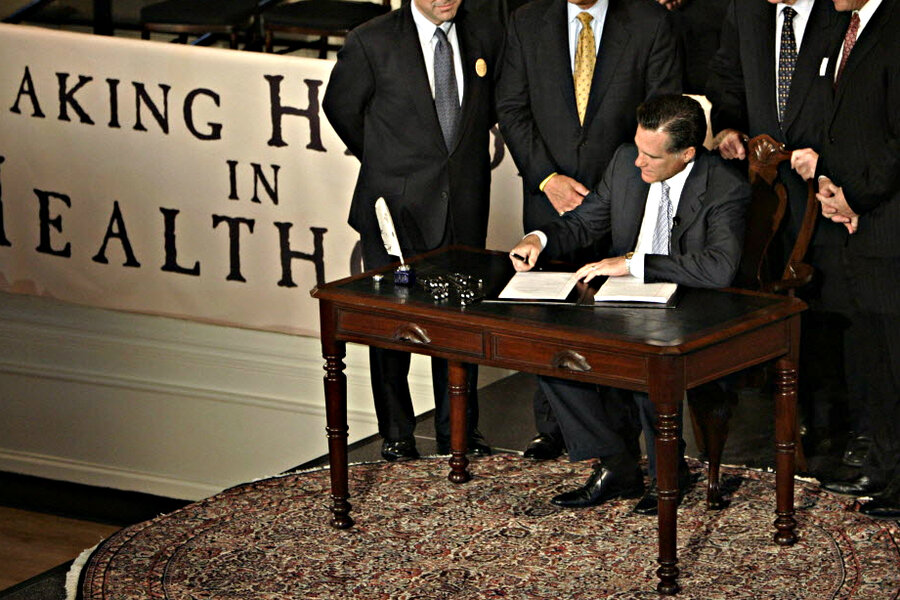As the model for President Obama’s Affordable Care Act, Romney’s health-care reform as governor of Massachusetts was poison during the GOP primaries. Most Republicans object to the reform’s mandate for individuals to purchase insurance, which parallels Obama’s reform. Romney’s insistence on defending the reform as a state’s prerogative, which makes it different from federal reform, frustrated conservatives who wished he would apologize for his “mistake.”
Now that Romney is the presumptive GOP nominee, most Republicans will vote for him despite the reform. “Anybody but Obama” is the new measure. But there’s a case to be made for “Romneycare” as a plus with swing voters in the general election. His ability to work with the heavily Democratic legislature in Massachusetts hits on a theme that a lot of centrist voters come back to: They’re sick of the hyper-partisanship in Washington and want someone who can work across the aisle. And in Massachusetts, at least, the reform is popular.
Romney’s championing of health-care reform also shows voters that he knows how to tackle a complicated social problem and think creatively about a solution. Women voters, in particular, care about the social safety net, and Romneycare could be an avenue into their hearts. Of course, Romney has promised that, as president, he would oversee the repeal of “Obamacare,” if the US Supreme Court doesn’t strike it down first. But as a “fixit man,” he can argue that he will fashion a replacement.





